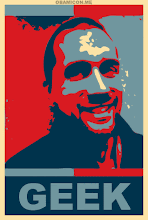It's important not to jump into a project just in the interest of time...when developing a serious game, the proper processes must be adhered to and addressed.
Put the proper processes into place...you can't just focus on core functionality and 'bolting on' additional. That additional needs to be part of the whole, not just as an add-on. This is a solid concept...don't think it's always fiscally/time-wise feasible, but a good principle for sure. By keeping the proper resources and processe in place, you will stand to have greater success in your serious game venture.
Taxonomy of Serious Games
Serious games is what this group does...a la the MMORPG genre, but tuned way up on the serious dial. The intro vid that they showed was a module designed to address prison rape. Very serious, heavy stuff and it carried its weight appropriately. Without much time to develop these, it's important to have multifaceted developers - vid engineers who are sound engineers, graphics people who do video, etc.
Concurrent's games are:
-web based
- developed with custom development tools
- now has extensions to commercial game engines (see: PS3, XBOX)
- costs between 400k to 1 mil
- takes .5 to 1 year to develop
- handled by a small 6-10 person team
- serves government and military clients
Concurrent's System Development Life Cycle
Analysis - Project Planning/Initial Client Meetings, Instructional Intent (Assess Needs, Determine Solution), Client Requirements, Tech Specs
Design - Concept Paper Development, Simulation Course Online, Screenplay Development, Initial Product Asset Development, Technical System Design
Development - Text Simulation Development, Asset Development, Product Development (resulting in an Alpha product for client review)
Implementation - Verification testing (does the product meet the requirements they were provided with), Validation testing (onsite testing, certification/accreditation criteria, etc.)
Evaluation - Evaluation tasks directly planned in support of individual efforts, if applicable, would apply to each part of the process.
Overall, more a primer on design/development cycle as opposed to a presentation about games, game theory, or serious games. Would have liked to have learned more about the practicality/usability of serious games. Well presented/prepared, however.
Subscribe to:
Post Comments (Atom)


No comments:
Post a Comment